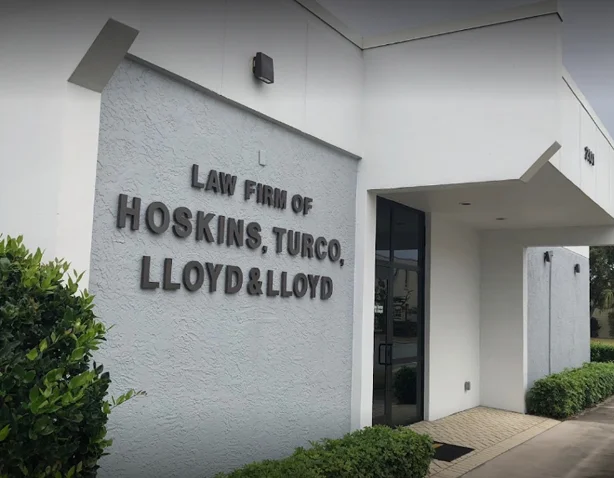Experienced Florida Social Security Disability Attorneys – Louis Turco and Ian Lloyd
Attorneys Louis Turco and Ian Lloyd, and the SSD legal team at Hoskins, Turco, Lloyd & Lloyd, have helped thousands of disabled residents apply for Social Security Disability benefits. The U.S. Social Security Administration (SSA) offers multiple types of benefits for those who are suffering from a temporary or permanent disabling condition. Those who qualify could receive monthly benefits for themselves and their dependent family members.
The Law Firm of Hoskins, Turco, Lloyd & Lloyd understands that filing for SSA disability can be frustrating. Whether you are seeking Supplemental Security Income (SSI), Social Security Disability Insurance (SSDI), Survivor Benefits, or other types of benefits in any number of available programs, we want to help you. Our Florida Social Security Disability lawyers, led by Louis Turco and Ian Lloyd, have decades of experience helping South Florida residents file their applications or put forth strong appeals. If you need help securing the disability benefits you or a loved one requires to meet the cost of living expenses, call our experienced Florida Social Security Disability Law Firm for a free consultation.
Schedule a free, no-obligation consultation discussing your Social Security disability case now by using our form to contact us online, or by calling 866-930-6435.
Get a free consultation 
What is the difference between Social Security Income (SSI) and Social Security Disability (SSD)?
Social Security Income (SSI) and Social Security Disability (SSD) are both programs managed by the Social Security Administration (SSA) in the United States, but they have significant differences in their eligibility criteria and payment structure.
What are the criteria for eligibility?
SSI benefits are based on financial need and disability (including age-related disabilities), while SSD is based on a person’s work history and long-term disability.
SSI is available to individuals with limited income and resources, regardless of their work history, while SSD is available to individuals who have paid into the Social Security system through payroll Social Security taxes and have a qualifying disability.
What are the maximum benefit levels?
The SSA sets the maximum benefit level for SSI and SSD, which determines the amount of money a person qualifying for Social Security will receive each month.
This maximum benefit amount is adjusted annually to account for inflation.
Can my children or spouse receive Social Security Disability benefits?
Yes, your spouse and children may be eligible to receive Social Security Disability Insurance (SSDI) benefits based on your work record. If you are approved for SSDI benefits, your spouse may be eligible to receive up to 50% of your benefit amount, while each child may be eligible to receive up to 50% of your benefit amount as well. However, we urge you to consult with a qualified Social Security Disability lawyer, as there are many factors impacting eligibility.
In order for your spouse and children to qualify for SSDI benefits, they must meet certain criteria, such as being your legal spouse or dependent child under the age of 18 (or up to age 19 if still in high school). Additionally, your spouse must have been married to you for at least one year before they can start receiving benefits.
It’s important to note that the total amount of benefits that can be paid to family members based on your work record is typically capped at around 150-180% of your full benefit amount. This means that if you have a spouse and multiple children who qualify for benefits, the total amount paid to all family members combined cannot exceed this limit.
Overall, SSDI benefits can provide financial support not only for you, but also for your spouse and children if they meet the necessary requirements. It’s important to consult with a Social Security representative or disability lawyer to fully understand the eligibility criteria and application process for family members to receive SSDI benefits.
Will workers’ compensation or other disability benefits affect the amount of my Social Security Disability?
Workers’ compensation and other disability benefits can affect the amount of Social Security Disability Insurance (SSDI) you receive. The Social Security Administration (SSA) caps the total benefits at 80% of your pre-disability income. If the sum of workers’ compensation and SSDI surpasses this threshold, your SSDI benefits may be reduced.
Workers’ compensation is a state-funded program for employees injured on the job, providing benefits regardless of fault. SSDI, on the other hand, is federally-funded and supports individuals with severe disabilities hindering their ability to work. Both require thorough medical assessments for eligibility and typically pay monthly benefits.
The duration to obtain workers’ compensation benefits varies but may take up to two weeks or longer, depending on circumstances. SSDI approval requires meeting disability criteria and can take from seven weeks to over a year.



















 Port St. Lucie
Port St. Lucie


